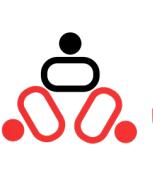Part 2: Mastering Challenging Interview Questions
Interviews often include challenging questions requiring candidates to demonstrate their skills, experience, and ability to think critically and communicate effectively. Here’s how you can tackle some of the most challenging questions you might encounter:
1. Body Language Matters: Never Sit and Shake Someone's Hand
Body language is a crucial aspect of communication during an interview. One key point to remember is to never sit while shaking someone’s hand. Always stand up to greet the interviewer, as it shows respect and professionalism. Also, maintain good posture and eye contact, and offer a firm handshake. These non-verbal cues convey confidence and can significantly impact the interviewer’s perception of you. This will lay the foundations for building on a positive interview.
2. The best possible detail: the candidate has to be happy and believe in the company, people, and vision for a 1-10-year plan
Employers want to ensure candidates are aligned with the company’s long-term goals and vision. You must convey genuine enthusiasm and understanding when asked about your commitment and belief in the company’s future. Start by researching the company’s mission, values, and recent achievements. During the interview, express your excitement about specific initiatives or growth opportunities mentioned. Discuss how your skills and career aspirations align with the company’s trajectory. Remember, enthusiasm is infectious – showcase your passion for contributing to the company’s success.
3. Don't leave questions at the end; ask them throughout to make it a conversation
Turning the interview into a conversation shows your engagement and interest in the role and company. Instead of waiting until the end, ask insightful questions throughout the interview based on the discussion. For example, if the interviewer mentions a recent company achievement, could you ask about the impact on future projects or company culture? This shows that you are curious and allows you to gather valuable insights to tailor your responses to align with the company’s needs.
4. If in doubt, it means there is a doubt
When faced with vagueness or uncertainty during an interview question, it’s crucial to approach it thoughtfully. If you have a question needing more clarity, please feel free to seek clarification. Politely ask the interviewer to elaborate or rephrase the question. This shows that you are committed to understanding and addressing the core of the inquiry. Once clarified, take a moment to gather your thoughts and provide a structured response. Remember, it’s better to take a moment to explain than to give an incomplete or incorrect answer.
5. Explain a technical concept to someone without a technical background
The ability to simplify complex ideas is a valuable skill in any role. When asked to explain a technical concept to a non-technical audience, you can start by breaking down the concept into digestible parts. Use analogies or real-world examples to illustrate the idea without relying on jargon. Gauge the interviewer’s understanding throughout the explanation and encourage questions to ensure clarity. This demonstrates your technical expertise, communication skills, and ability to adapt your message to different audiences.
6. What is a recent industry trend that interests you? How do you think it will affect our company?
Staying updated on industry trends showcases your industry knowledge and forward-thinking mindset. Before the interview:
- Research recent developments in the company’s industry.
- Choose a trend that aligns with the company’s operations or challenges.
- During the interview, discuss the trend’s potential impact on the industry and how it aligns with the company’s goals.
- Support your insights with examples or data to substantiate your analysis.
This shows you can connect external trends with the company’s strategic objectives, highlighting your value as a proactive and informed candidate.
7. How would you measure the success of a project you were leading?
Measuring project success requires understanding key performance indicators (KPIs) and outcomes clearly. When answering this question, outline the KPIs relevant to the project’s goals and objectives. Discuss how you would set benchmarks, track progress, and evaluate outcomes against these metrics. Highlight any methodologies or tools you’ve used to monitor project performance effectively. Additionally, emphasise your ability to adapt strategies based on data insights and stakeholder feedback to ensure project success. This demonstrates your analytical skills, attention to detail, and ability to drive results in a structured manner.
Conclusion: Mastering the Interview Process
Navigating challenging interview questions requires preparation, confidence, and strategic communication. By understanding the company’s goals and values, maintaining an engaging conversation throughout the interview, seeking clarity when needed, and demonstrating your ability to simplify complex concepts, you can effectively declare yourself fit for the role. Remember, each question presents an opportunity to highlight your unique strengths and perspective. Approach each interview as a chance to connect with the interviewer, align with the company’s vision, and demonstrate your readiness to contribute. With these strategies in mind, you can confidently navigate any interview scenario and position yourself as a standout candidate poised for success.
Keep a lookout for part 3!

